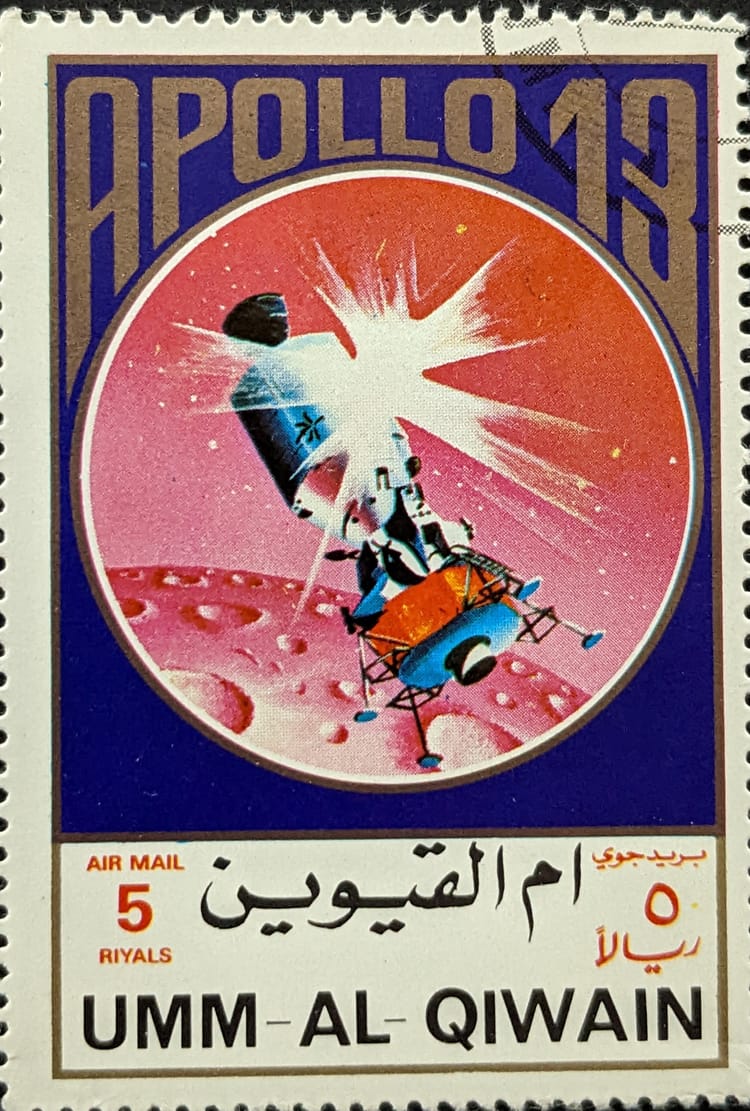Thinking About “New Space” Startups
Quick note: we are in the process of selling our house and moving. Because of that, there will be a few times during the next month where I just can’t get a post out the door. Yesterday was one of those times.
On to the post...
In “Strength in FUD (Fear, Uncertainty, & Doubt)” and “OneWeb’s Loan-ly Quest,” we see a few “New Space” companies appearing to be in dire straits. OneWeb is bankrupt, and other U.S. smallsat companies are hoping the U.S. government will ride to the rescue with generous subsidies. All floated the specter of foreign investors gaining access to technologies and intellectual property as reasons for them to get money. Before doling out funds it might be good to know what a “New Space” company is.
New Space, NewSpace, GNUSpace?
Last year, the Secure World Foundation (SWF) conducted a space industry survey to gain insight into how its various participants defined various terms. Two terms, in particular, were explored during the survey: New Space and commercial space. .A summary of the SWF’s findings was released in September 2019
I dislike the term “New Space” because it is used as 1) a promotional tool for certain agenda-driven organizations, and 2) as a cognitive shortcut by almost anyone (which can make this terminology dissonance worse). Also, as the SWF noted, there is no “universally accepted definition” for the term. This ambiguity can allow for all sorts of shenanigans to occur. The SWF is not the only one attempting space industry term clarification, but its survey appeared to be more even-handed than those other efforts.
Since this analysis is about New Space, that portion of the survey findings is what I’ll use to help kick it off. From the survey (bold is mine):
During the interview process it quickly became clear that in practice newspace currently has no universally accepted definition, and its range of usage has made it resistant to a firm definition. Some interviewees suggested that newspace and commercial space meant the same thing, while most considered them to be different. In general there were some broad aspects of what newspace referred to that were predominantly agreed upon. Most agreed that newspace referred to a change in the way space activities are conducted. There is also general agreement that moving from cost-plus to fixed-price contracting is a key underlying principle to the newspace concept. Beyond that, definitions begin to vary more. There was a strong association with either start-ups or a start-up mentality, but what this meant in effect depended heavily on the interviewee. --“The Terminology Challenges of Communicating Value in Space Enterprises--Summary of Findings,” p. 6. Secure World Foundation. September 3, 2019
Based on the above quote, there are a few agreed-upon New Space characteristics:
- They represent a change in space activities being conducted (by legacy companies)
- They are associated with start-ups in some way
- They tend to embrace fixed-price contracting
I will focus on the first two bullets.
Changing the Space Game
Are all companies cloaking themselves with the New Space term conducting space activities differently? That’s difficult to say without actually conducting a very comprehensive survey. But we can use a few of those companies that have been in the public’s eye for some time as possible pseudo-samples.
OneWeb
Yes, OneWeb filed for Chapter 11 bankruptcy a month ago, but maybe that kind of financial distress will also be a signature of New Space companies (at least according to the various requests for financial help from the government)?
However, OneWeb did change a few things, primarily with satellite manufacturing and cost surrounding that activity. An OneWeb communications satellite for ~$1 million represents significant changes to satellite manufacturing and supply chain management in the space industry. The company’s ambitious 1.5-2 satellites manufactured per day also is unprecedented, considering the satellites’ complexity. These two topics alone seem to qualify OneWeb as a New Space company for the first bullet.
SpaceX
It’s difficult to dispute SpaceX’s claim to a New Space mantle. It’s activities as a rocket manufacturer and launch services provider push changes in a sector that doesn’t really want it at a rate that is hard to keep up with.
Reusability? It wasn’t required nor asked for, but SpaceX did it anyway (and seems to be reaping benefits through experience and other endeavors). Low-cost launches? According to the company, there’s nothing exotic or expensive with its Falcon launch vehicle line. The rocket was designed to be inexpensive to manufacture and operate (which was also not required by government customers). It’s doing everything it can to keep Falcon 9 launch prices low--including attempting to catch falling fairings.
Similar to OneWeb, SpaceX’s Starlink satellite manufacturing capability is another change in price and assembly time. From all accounts, the Starlink satellites might be more capable than OneWeb’s, but cost about a third as much. And, SpaceX is somehow manufacturing seven per day.
Planet
Planet is the New Space company most often associated with the smallsat/cubesat bus and making a business from that satellite platform. The product itself--Earth imagery from space--isn’t anything revolutionary or fancy. But the size and cost of the technology for collecting that imagery and the philosophy enabled by it is. The company inexpensively manufactures dozens of its Earth observation cubesats (called Doves). During a SpaceNews interview, Planet’s CEO, Will Marshal, had this to say about launch failures destroying dozens of Planet’s Doves:
“If a few of them blow up, it doesn’t matter.”
That philosophy absolutely represents a change in the satellite manufacturing industry and it’s bolstered by the cubesat platform Planet uses for its constellation. The cubesat is a standard that can be easily mounted atop most rockets. It’s inexpensive. It’s easier and takes less time to manufacture. Much different from a Maxar DigitalGlobe satellite (also not quite as capable). These traits allow Planet to deploy a constellation of hundreds of Doves, which provides another change--high revisit rates over all areas of the Earth.
Operating “like” Silicon Valley Start-ups
Are these companies associated with Start-ups?
If it had existed at the time of OneWeb’s founder, Greg Wyler, leaving Google, then he would have probably left from Google’s holding company, Alphabet. A few of Alphabet’s other subsidiaries are know startups--Waymo and Loon. That association alone implies that OneWeb may have had some start-up genes (and why people initially ‘overlooked’ some inconvenient facts about the company).
SpaceX’s Chief Engineer, Elon Musk, changed the world already while working with Peter Thiel on Paypal. That association, not even including his other ventures such as Tesla, gives SpaceX a “start-up stink.” But Musk has not relied on his early achievements alone to make SpaceX seem start-up-like. His company’s everyday activities seem to codify the start-up mentality from constant launch vehicle iteration to rapid directional changes in the business plan. Add to this the fact that SpaceX’s valuations still give it “unicorn” status.
Planet’s founders come from a more traditional space industry background--NASA. The company’s presence in San Francisco, as well as its attempts to provide a constant, near-real-time, stream of imagery data using inexpensive satellites, seem start-up-like in ambition. Its constant search for funding also makes Planet appear as a traditional Silicon Valley startup. The company was given unicorn status in 2015.
At a basic level, with the SWF’s survey respondents agreeing generally to the three criteria listed, these three companies--SpaceX, OneWeb, and Planet--seem to qualify as New Space companies. Of the three, two don’t appear to be asking for government assistance as a hedge against the pandemic. The three example companies are some of the most well-known representing New Space, but there are many other start-ups that qualify/advertise themselves as such, too. This could indicate that either the criteria are too lax, or that the space industry is just lousy with start-ups.
It may be there are other criteria to examine that may help with this as well.




Comments ()